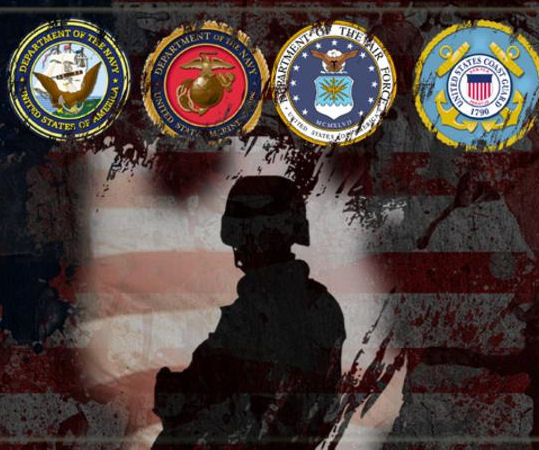
Motivational speaker Zig Ziglar used to teach that we make decisions based more on emotion than anything else. Although we rationalize our decisions with reason, the choices we make are built first on a foundation of emotion. So, only when our emotional foundation is at peace with the rest of our lives, can we live peaceful, and prosperous adult lives.
For these reasons, when a person experiences a significant emotional trauma, their personal growth can stop. Even though we continue to age and mature physically, emotionally charged events, such as the death of a loved one, a divorce, the aftermath of an abortion, or the emotional scars of childhood physical or sexual abuse will bend the victim’s behavior into a permanent, often self-destructive path. Emotional traumas set limits on our relational, personal and professional abilities
For a soldier, who willingly went into a battlefield. Post-Traumatic Stress Disorder (PTSD) is the outgrowth of the same kind of emotional pain. Soldiers encounter events for which there is no preparation. When they return home, adjusting to normal society can be as difficult as landing in a foreign country. The rules are different in war, and the soldier, who was trained to follow the rules as a way of protecting his life, now has to reframe his entire world view. Many soldiers don’t successfully navigate the transition.
According to Ryan Faber of Adapt and Overcome, 18 veterans are committing suicide per day, most of whom suffer from PTSD. Himself a fully disabled veteran who suffered from PTSD, Ryan chose to use his experiences to reach his brothers-in-arms, and work to change this staggering statistic. Ryan says in many cases, government based counseling isn’t helping vets overcome their PTSD. The government’s resources are spent helping veterans identify their issues, but then their treatment is limited to medication and minimal counseling. Ryan knew there was a better option, and crafted this vision for his organization.
“Assisting our Injured Veterans to achieve recovery through the use of competitive activities to develop and empower the Veteran with the skills, motivation, and sense of purpose necessary to rise above their injuries and rediscover their confidence and greater self-worth.”
His strategy includes using competitive firearms training to reintroduce the solider to the environment that contributed to their emotional turmoil. Ryan teaches former and disabled vets to shoot competitively. In the safe environment of a competitive shooting range, soldiers learn to identify and tear down the emotional walls they built during combat. Ryan says that competitive shooting also “gets vets off the couch, and gives them a sense of purpose again.”
Ryan Faber understands the journey that his shooters face. While he still has the body parts God gave him at birth, he is 100% retired and classified as disabled. His body contains shrapnel acquired on the battle-field, and after 5 concussions he personally battles PTSD, with flashbacks and nightmares. Being around firearms in a competitive arena helped him focus his energy, and compete at something at which he excels. Today, Ryan is a NRA certified instructor, and he trained a team of 12 disables vets who competed in the 2012 para-Olympics, fire-arm competitions. When necessary, their organization pays for modifying a firearm so a disables vet can handle a rifle safely after losing fingers, hands or limbs in combat.
Veterans involved in Adapt and Overcome spend lots of time together on the firing range, putting thousands of round downrange. Yet Ryan’s focus is building relationships with his brothers, and helping them experience emotional healing through relationships, and a cohort of men who understand each others’ journey.
In the next 2-5 years, Ryan’s vision is to expand their organization that is currently operating in Michigan, North Carolina, Missouri, Arizona, Colorado and Florida. “I want to break the trend of 18 of my brothers committing suicide every day due to PTSD and their war experiences.” Ryan said that in five years, he would like to look back, and see this tragic statistic cut in half as a direct result of his organization’s work.
If you would like to know more about Adapt and Overcome, visit http://www.adaptnovercome.org/. There you will find an email contact form and a mailing address to their headquarters in North Carolina. As of the writing of this article, tThe organization is working toward securing their formal non-profit status, and any donations go directly to helping injured, disabled and recovering veterans.